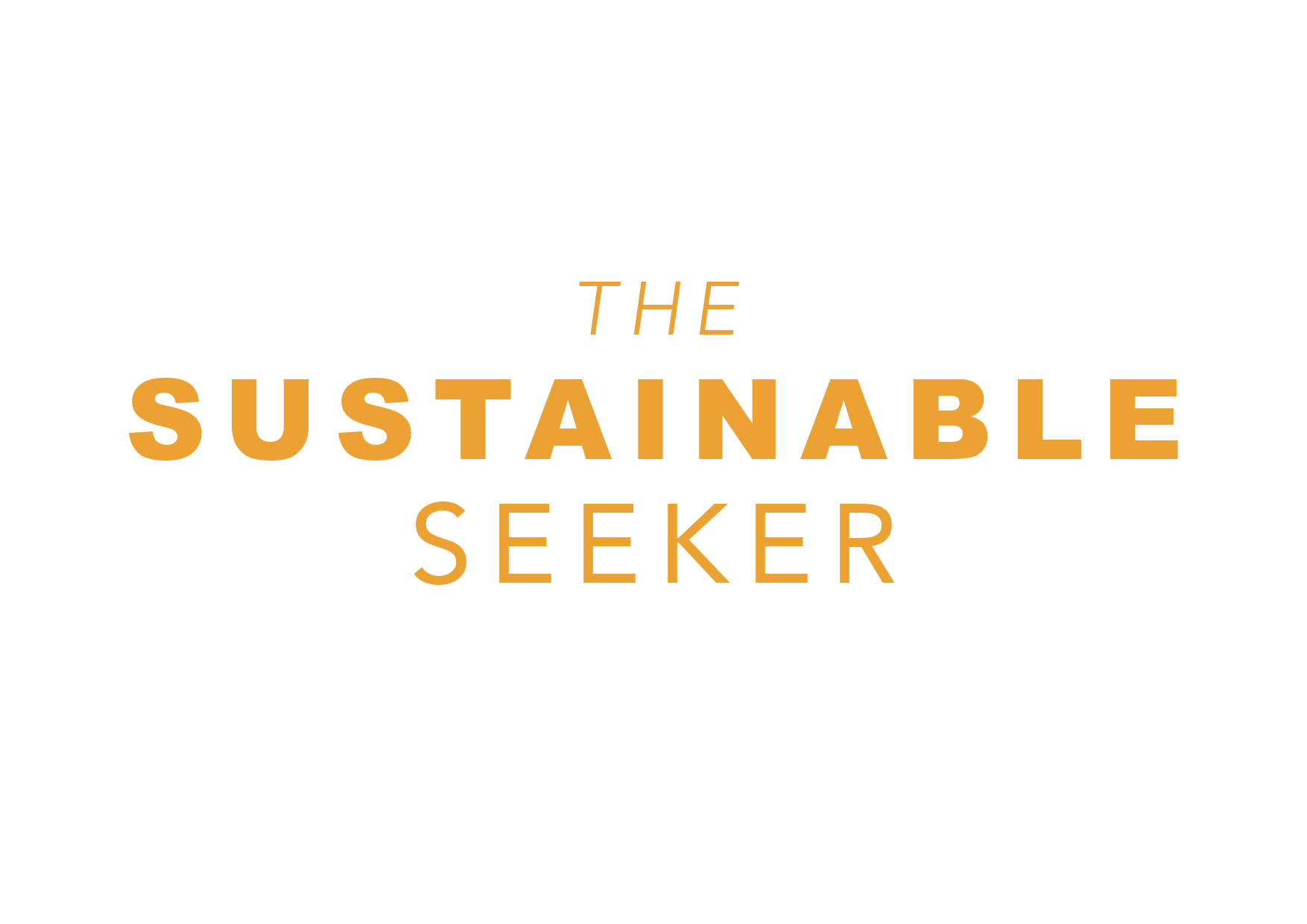Beeswax is an ingredient that is used in plenty of every-day items, such as candles, make-up, skincare products, and even food wraps. However, the question is this – is beeswax vegan?
Beeswax is a popular ingredient in many products because of its ease of access and its versatility. However, with an increasing number of people becoming more environmentally conscious regarding the ingredients of the products that they use, there is a growing debate as to whether or not beeswax is vegan.
In this article, we delve into this debate and find out where exactly beeswax stands in the eyes of vegans to answer the question that has been on everyone’s minds recently – is beeswax vegan?
At a glance:
- Beeswax is generally NOT considered vegan
- Beeswax, when sourced and extracted properly can be vegetarian, halal, eco-friendly, and sustainable
- Products that use beeswax as a key ingredient include skincare and makeup
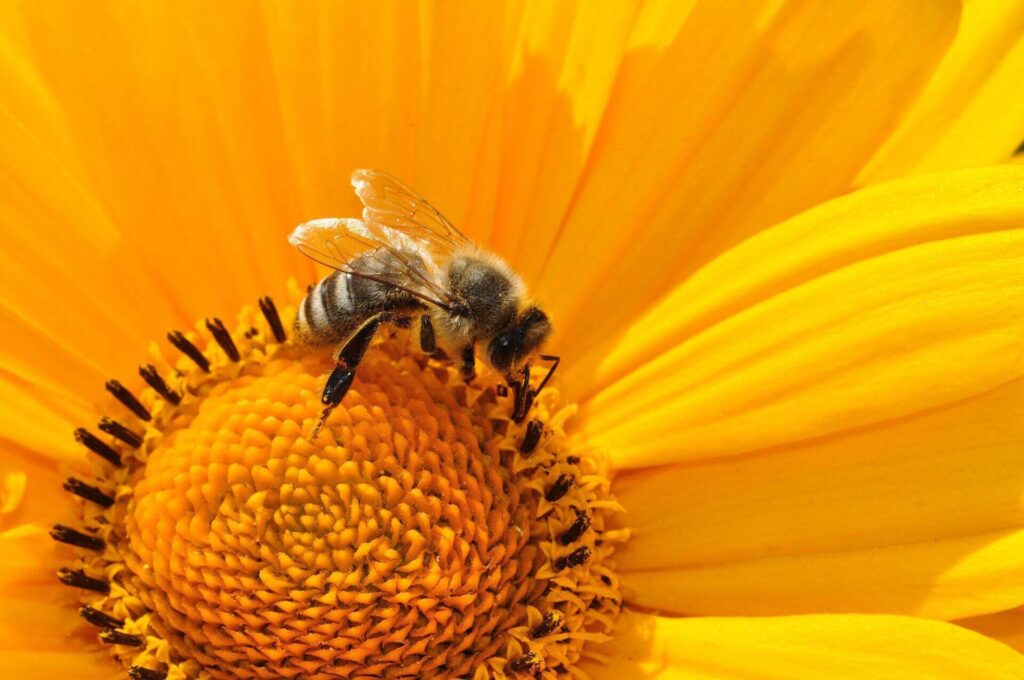
Affiliate Link Disclosure
This article contains some affiliate links which means that we may earn a small commission when you click on them, at no additional cost to you. We do hope you find the information in this article helpful!
Related posts
- CANDELILLA WAX VS BEESWAX: EVERYTHING YOU WISHED YOU KNEW
- 9 THINGS YOU DIDN’T KNOW ABOUT BEESWAX VOTIVE CANDLES
- BEESWAX PILLAR CANDLES: EVERYTHING YOU NEED TO KNOW
- BEESWAX TEALIGHT CANDLES- AN EPIC GUIDE
Summary of the best beeswax products:
What Is Beeswax?
Beeswax is the natural wax that is secreted by bees when they make honey in their hives.
When making their honeycomb, the bees cover the holes with wax caps. Bees usually produce three times more wax than is needed to cover the holes.
As such, it is these excess wax caps that are removed by the beekeeper using a hot knife to give us the raw beeswax ingredient that is then processed to be used in various other products.
What Is A Vegan Lifestyle?
There is a misconception that a vegan is someone who does not eat meat or anything containing the flesh of an animal.
However, more accurately, a vegan is someone who does not eat anything that contains ingredients that are derived from any animal, nor do they use any products that are obtained from animals in any way.
According to The Vegan Society, the primary philosophy behind a vegan lifestyle is to ensure that no animal is exploited or subject to any form of cruelty to obtain or produce food, clothing, or any other item or for any other purpose.
This goes to show that veganism is not just confined to the consumption of food.
Rather, it extends to all other aspects of a vegan’s lifestyle. Essentially, anything that is sourced from an animal is considered to be non-vegan.
What Is The Difference Then Between A Vegan And A Vegetarian?
This may very well be the next question on your mind.
A vegetarian lifestyle is focused primarily on food consumption and diet. This means a vegetarian consumes a solely plant-based diet.
A vegetarian does not eat anything containing animal flesh, including fish. However, vegetarians do consume milk, cheese, and sometimes even eggs. These are derived from animals but do not contain parts of the animal as such.
If you’re still a little confused, here’s a quick guide that sets out the key differences between a vegetarian and a vegan.
| Vegetarian | Vegan |
| Primarily references the diet of an individual | Is a way of life, expanding to all aspects of one’s life |
| Consumes products derived from animals such as milk, eggs, and cheese | Does not consume any product derived from animals |
| Depending on the individual, it may be acceptable to use products made from animals such as leather bags | Does not use any product made from animals |
| Depending on the individual, it may be acceptable for them to go to zoos, aquariums, circuses, and other places that may use animals for entertainment purposes | It is not acceptable to vegans to exploit animals in any manner or subject them to any form of cruelty, training, or anything that is considered to be contrary to the animal’s natural state of existence |
Is Beeswax Vegan?
With this detailed analysis, it is probably safe to conclusively state that beeswax is not vegan.
If you’re wondering why beeswax is not vegan, it is simply because it is a byproduct of an animal. Further, there are arguments that it exploits the hard work of bees.
Is Beeswax Vegetarian?
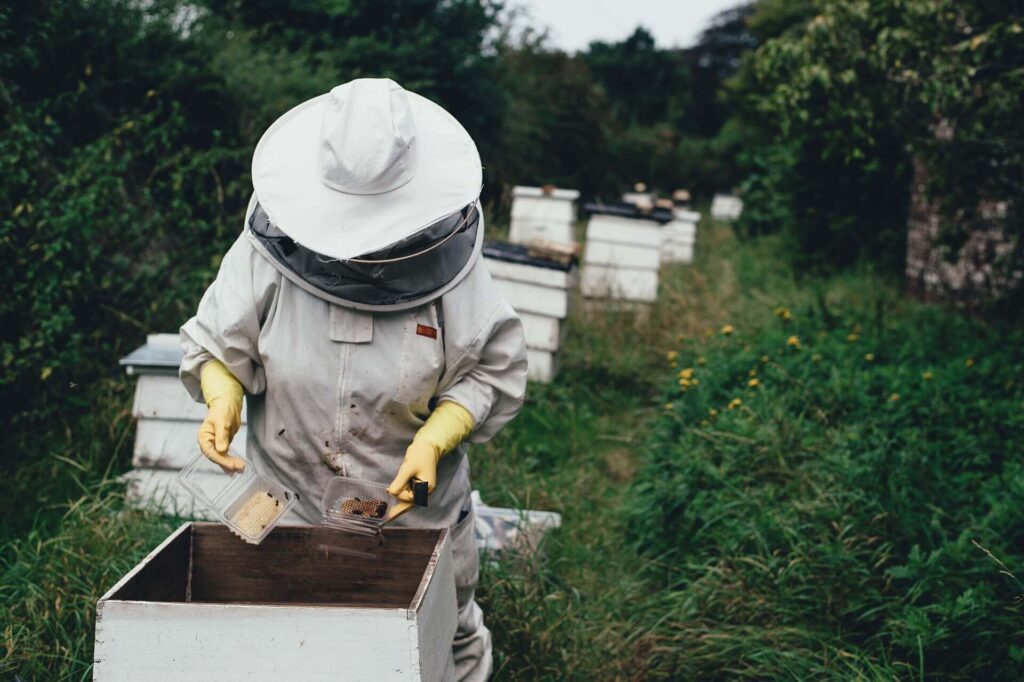
An analogy can be drawn between beeswax and cow’s milk.
While the cow is not being eaten, the milk comes from the cows which are kept solely to produce milk.
This is seen by the vegan community to be an exploitation of the cows. As such, this milk is not considered to be vegan.
However, vegetarians do consume milk and cheese.
This is because the philosophy behind vegetarianism accepts that products derived from animals can be consumed, as long as the animal itself is not consumed.
As such, going by that same logic, because of the exploitation of the bees and their work, beeswax is not vegan but vegetarian.
Is Beeswax Cruelty-Free?
This will depend very much on how the beeswax is sourced and extracted for use in the manufacturing of consumer products.
Some bee farms are careful in their process of extracting the beeswax. They do so in a manner that ensures that the bees are not harmed in any way. They also ensure that the condition in which the bees are kept is optimal for their health and safety.
However, despite how careful one might be, it is sometimes inevitable that bees may get burned or killed during the extraction process. As such, it is difficult to say with utmost certainty that beeswax is cruelty-free.
The best way to be certain is to research the source of the beeswax in your product to ensure that the bees are treated in a cruelty-free manner in the farming and wax extraction process.
Is Beeswax Halal?
According to the Halal Food Guide, beeswax in its pure form is indeed halal.
However, it would be best to check on the other ingredients that it is combined with when you are looking at purchasing products such as make-up, hand creams, lotions, lip balms, or any other products that list beeswax as an ingredient.
This is because sometimes the solvents used to dissolve the beeswax to make it suitable for use in consumer products may not be halal.
As such, the entire ingredient list should be looked at in context to determine this.
Is Beeswax Sustainable?
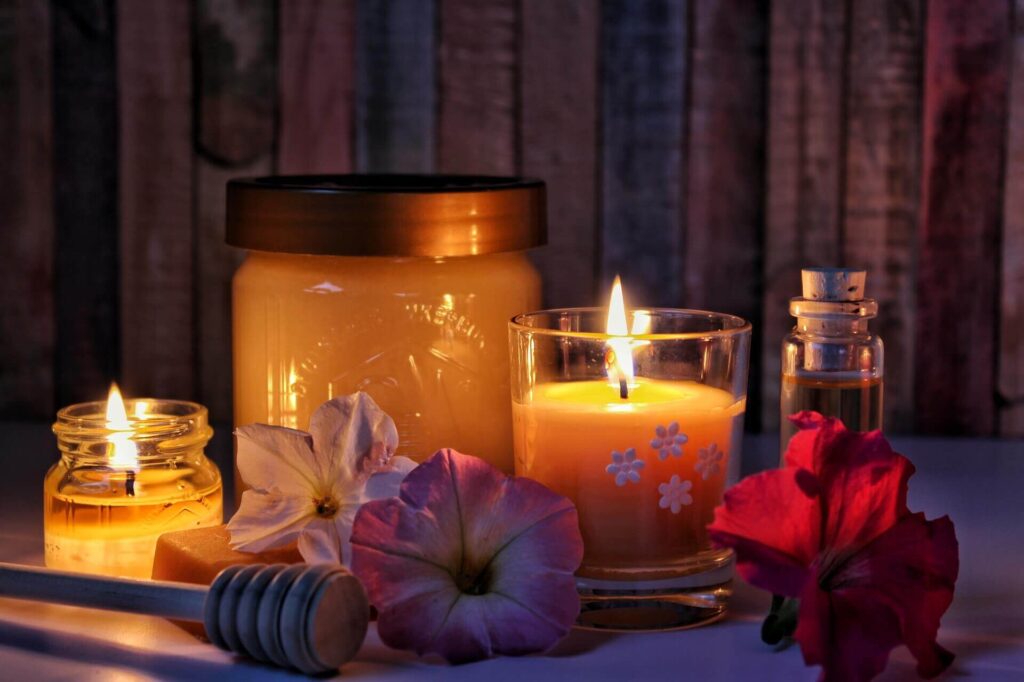
Bee farming or beekeeping for the purposes of extracting beeswax is largely considered to be eco-friendly and sustainable.
According to Beeskin, beekeeping is considered to be sustainable when the interactions between humans and bees contribute to a healthy population of both wild bees and bees that are farmed.
Beekeeping is also considered to be sustainable due to the minimum resources and energy that is required to operate and maintain bee farms to extract honey and beeswax for the manufacture of consumer products.
As long as the bees continue to live, are treated humanely, and dealt with responsibly, beeswax is sustainable indeed.
What Kind Of Beeswax Is Vegan?
Unfortunately, no matter which way it is argued and no matter how well the bees are taken care of, it is difficult to say that beeswax is vegan for the very fact that they are an animal byproduct.
Is Organic Beeswax Vegan?
Some products that are sold are marketed using organic beeswax with claims that it is vegan. However, again, organic or not, beeswax is not vegan by the strict definition of the term.
Organic beeswax merely means that the bees are not exposed to chemicals such as pesticides, fungicides, and herbicides.
Realistically, this may be difficult to maintain as most bee farms are in areas where there are plenty of flowers and crops. As such, there may not be a guarantee that bees will not go to these areas which could have been exposed to such chemicals.
Are There Alternatives To Beeswax?
As we have seen, it is unlikely that beeswax is considered vegan nor is it considered vegan-friendly.
If you are on your journey to being a vegan or if you are thinking about it, you may then be wondering whether there are any vegan beeswax alternatives you can look out for or use.
Beeswax – Vegan Alternatives
1. Synthetic Beeswax
Synthetic beeswax is essentially a lab-made version of natural beeswax. It can be manufactured with the relevant oils and esters to ensure that it functions in the same manner as natural beeswax.
2. Candelilla Wax
This is a plant-based wax that is slightly more dense than natural beeswax, making it the perfect alternative in terms of affordability and value for money.
3. Carnauba Wax
This beeswax alternative comes from a plant that originates from Brazil. It is considered to be hypoallergenic as well and so can be safely used in skincare and cosmetic products.
4. Soy Wax
Soy wax appears to be a great vegan alternative to beeswax.
However, because it is less dense than other forms of beeswax alternatives, it is more suitable for use in container candles rather than skincare or cosmetic products. Being in container candles allows it to better hold its shape for a longer time.
5. Oils
Oils, when used correctly, are a great alternative to natural beeswax, especially for use in lip balms, lotions, and any product that promotes intense moisturizing benefits.
Suitable oils include:
- Olive oil
- Almond oil
- Macadamia oil
- Jojoba oil
Should I Use Beeswax Products?
This will very much depend on your personal philosophies and chosen lifestyle. As we have seen above, beeswax can be vegetarian, cruelty-free, and halal-friendly.
If you live by these philosophies, then there is no reason why you should not use beeswax products as long as they are ethically and sustainably sourced and produced.
If you are on the lookout for such products, we have a great list of recommendations for you!
Beeswax Products We Recommend
1. Saffron & Serai Beeswax Wraps
These beautiful handmade wraps are a great eco-friendly alternative to cling film or plastic containers.
Emblazoned with stunning batik patterns that are reflective of the brand’s Malaysian heritage, these wraps are easy to wash and can be reused for up to 6 months as long as they are taken care of properly.
2. Sky Organics Tinted Lip Balm
These cruelty-free lip balms use responsibly sourced beeswax and come in a range of beautiful tints to keep your lips healthy and moisturized.
3. Squeaky by Mom Bomb Heel All Menthol Balm
If you suffer from chronic dry skin, especially dry heels, then this is the perfect product for you.
Made from cruelty-free beeswax, this one-jar miracle effectively combines the beeswax and menthol to seal moisture in, leaving you with smooth, plump, and hydrated skin.
4. The Naked Bee Orange Blossom Honey Lotion & Lip Balm Set
This combination set is made from, among other things, sustainable beeswax and honey.
With its pleasant floral scent, it also makes a great gift for the special people in your life.
5. Organic Magic Balm
This all-purpose healing balm is made using arnica and organic beeswax. Gentle enough for diaper rash and multifunctional to heal dry hands and chapped lips.
With no chemicals or preservatives, this can be used on any part of the body, especially on chronic dry skin areas like the elbows, knees, and feet to soothe any cracks you may have.
6. 100% Beeswax Candles
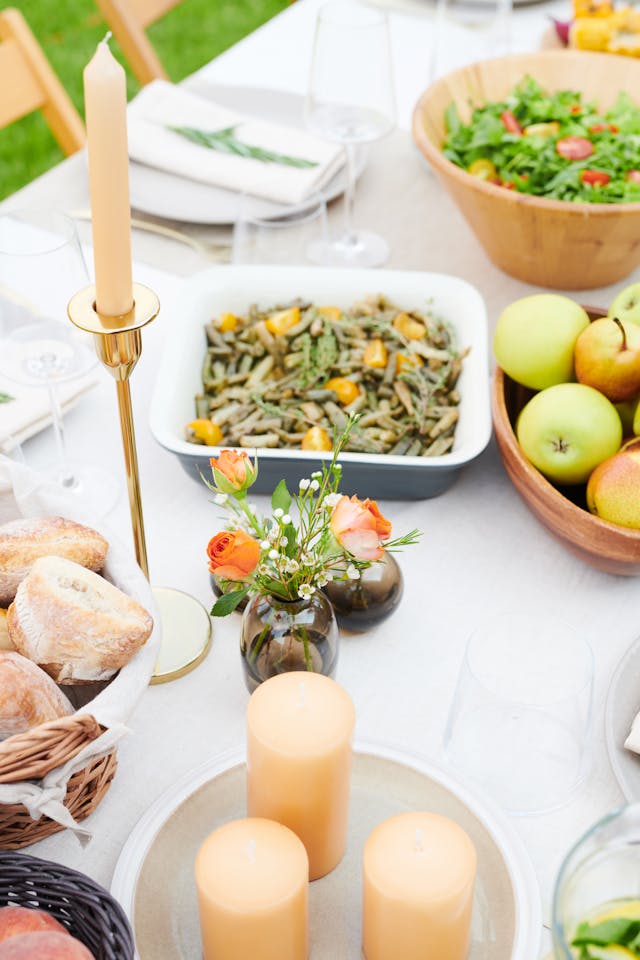
These hypoallergenic candles also work wonderfully as table decorations as a result of their intricate honeycomb patterns.
The subtle honey scent provides you with a calming environment, no matter where you are.
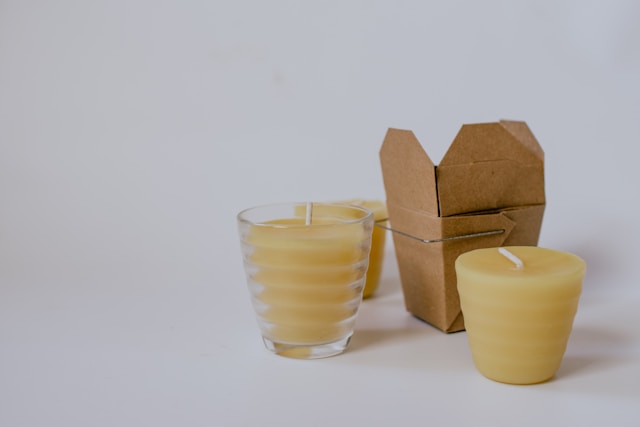
As you can see, beeswax is a common ingredient that is used in almost every product that claims to be emollient and moisturizing.
These are the characteristics of beeswax that make it extremely suitable for skincare and makeup. Beeswax is unique when compared to other types of waxes because it is also:
- Anti-bacterial
- Anti-inflammatory
- Soothing
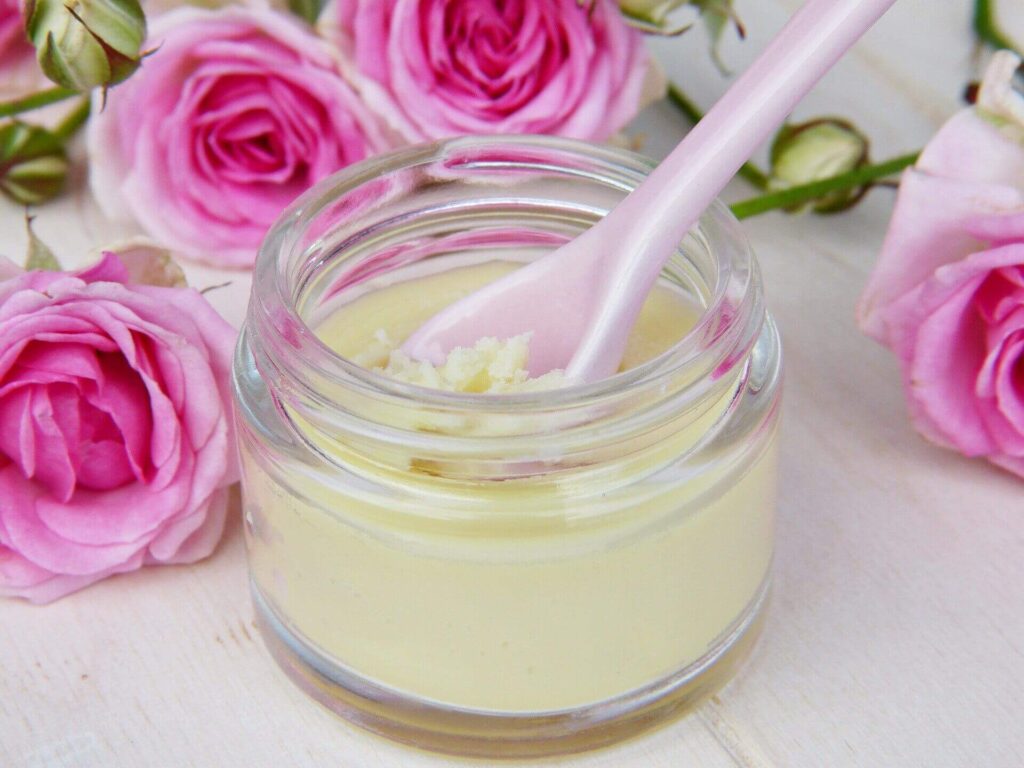
These properties of beeswax make them the perfect ingredient for natural healing products.
In recent years, other than putting it in makeup, lotions, and skincare products, people have gotten extremely creative in the use of beeswax.
As such, you can also find beeswax in:
- Soaps
- Wood polish & Conditioner
- Non-Toxic Crayons – Honey Sticks
- Deodorant
The list is endless, to be honest!
The demand for beeswax is at an all-time high especially with many people starting small businesses that sell organic soaps and skincare products.
As such, it is now more important than ever to ensure that bees, which are core players in a healthy ecosystem and environment, are treated well.
If you are starting your journey towards being more eco-friendly, and environmentally conscious, then all you need to do is look out for where the beeswax in your product of choice comes from.
As you can see, if the question on your mind was “is beeswax vegan?”, then the answer is no.
However, depending on how the beeswax is sourced and extracted, it is a vegetarian, eco-friendly and cruelty-free ingredient that is useful in so many ways.
